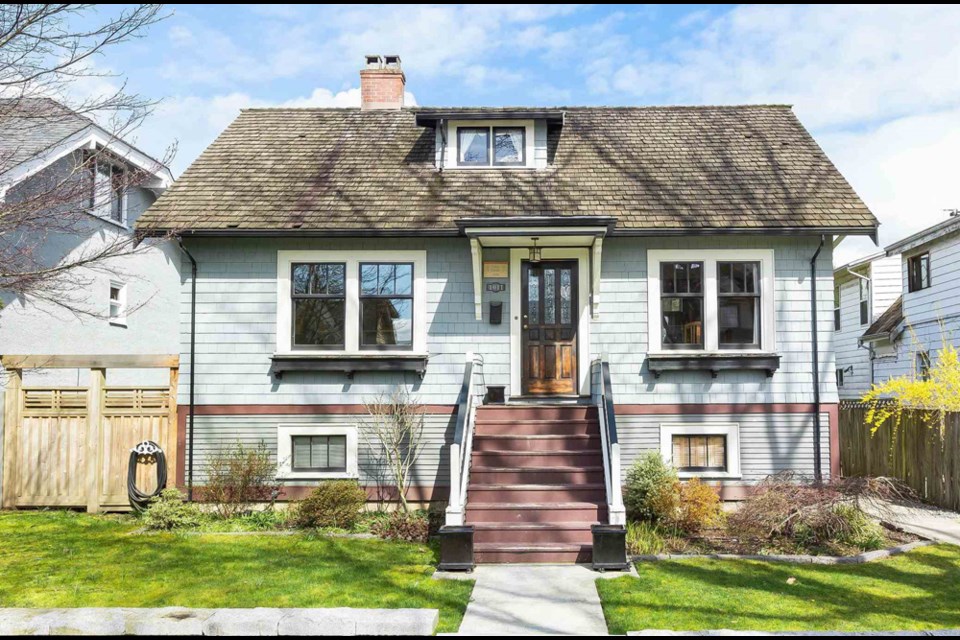Old is in – even if it’s tiny.
That’s become clear in a hot seller’s market when even houses that are nearly a century old are going for big money.
The latest is a 93-year-old house on Cambridge Street in Burnaby that just sold for $2.5 million – which is $450,000 over the original asking price.
The house sold in just seven days.
The listing calls this heritage home “charming” and located in the Vancouver Heights area of North Burnaby. The house is definitely small at 2,300 square feet and sits on a 6,100-square-foot lot.
The house has been updated (scroll through the photos above), although it appears to have the original wood floors throughout the home. There is also a “mortgage helper” that looks like a laneway-style house in the backyard.
There has been a flurry of old houses selling for more than $2 million in Burnaby during the past few months. There is also an influx of newish homes that are selling for between $4.1 and $6.3 million.
Burnaby South currently sits at a benchmark price of $2,067,100 (+4.2% in one month) while Burnaby North was at $2,021,400 (+4.9% in one month), according to the Real Estate Board of Greater Vancouver’s March report.
Burnaby East stayed under $2 million at $1,776,300 (+2.7% in one month).
Canada’s housing market will “moderate from historic 2021 levels” in terms of price, sales, starts and rentals over the next year – but not to the point where owning or renting a home will be any more affordable than it is now.
That is the forecast published by the Canada Mortgage and Housing Corporation, or CMHC, this morning in its latest Housing Market Outlook. The report noted that, despite the expected moderation in prices and the number of sales throughout Canada, costs growth will continue to outpace income growth in several major cities – placing “greater pressure on the affordability of home ownership.”
“Improving levels of employment and immigration are expected to be key factors, as the impact of pandemic restrictions continue to recede,” said CMHC chief economist Bob Dugan in a statement about sales, prices and housing starts remaining elevated in 2022. “In 2023 and 2024, the growth in prices will trend closer to long-run averages, with sales and starts activity expected to remain above 5- and 10-year averages.”
The report paints the same picture for Metro Vancouver, Canada’s most expensive real estate market. According to the CMHC outlook, price growth of homes should slow down this year from the blistering pace seen in 2020 and 2021 – but immigration-driven demand and rising debt servicing costs will lead to a worsening of affordability.
CMHC projects the growth rate of home prices in the Greater Vancouver region will not continue on its double-digit rate beyond Q1 2022, and the rate of growth in prices will actually fall to below 5% year-over-year by 2023.
Braden Batch, CMHC’s senior analyst of market insights (and author of the outlook’s chapter on Vancouver), noted there are variables in the projection of continued growth for the Lower Mainland’s real estate market. Batch noted that “trouble in the national and global markets” – ranging from interest rates to other economic pressures on B.C. home buyers – could slow market activity to a greater degree than what’s projected if Metro Vancouver cannot remain insulated.
Similarly, total housing starts will fall this year in Metro Vancouver and shift towards row and semi-detached units, but shortage in skilled trade labour and supply chain bottlenecks will continue to push costs of construction higher.
- With additional reporting by Chuck Chiang, Business in Vancouver
Follow Chris Campbell on Twitter @shinebox44.


